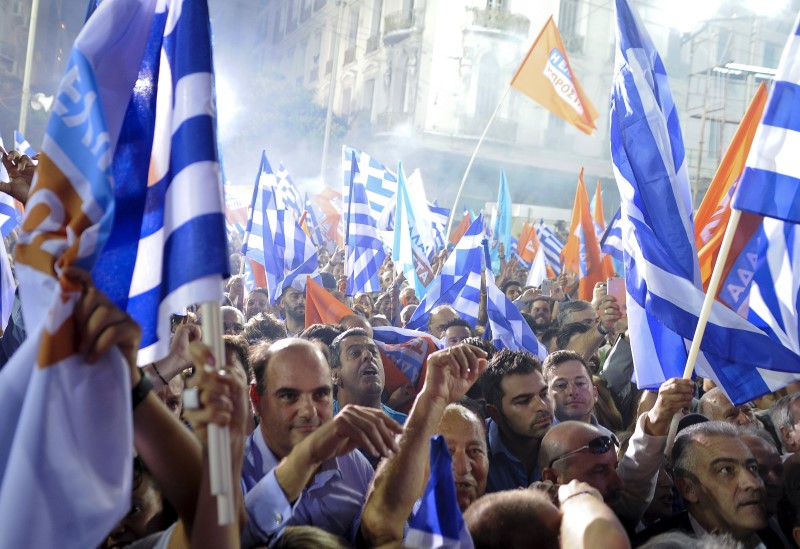By Renee Maltezou
ATHENS (Reuters) - Four opinion polls on Thursday underlined the tightness of Greece's election campaign, offering different outcomes but all pointing to no outright winner when ballots are cast.
Greece will hold its second national election this year on Sunday - but the third countrywide vote when July's referendum on whether to accept a new European Union bailout deal is included.
All the polls showed the leftist Syriza party of former prime minister Alexis Tsipras and the conservative New Democracy of Vangelis Meimarakis within spitting distance of each other.
In each poll, however, neither party came close to the 38 percent widely believed to be needed to establish a majority in the 300-seat parliament.
"The parties are running neck and neck. The lead each party gets in polls is small and doesn't tell much," political analyst John Loulis said.
Given that Greece's compliance with the 86 billion euro bailout programme is at issue, many at EU headquarters in Brussels and in other European capitals would like to see a broad coalition emerging from the election.
But Syriza and New Democracy, while both pledging to uphold the bailout terms, disagree on pivotal matters like labour market liberalisation, collective bargaining and immigration.
The closest poll, by Pulse, gave both parties 28 percent.
Syriza "won" two - leading 29.0 percent to 28.3 percent in a Kapa Research poll for To Vima newspaper, and by 25.3 percent to 25.0 percent in one by pollster Alco for the newsit.gr website.
New Democracy took the lead in the fourth poll, however, pipping Syriza 31.9 percent to 31.6 percent in a Metron Analysis survey for the parapolitika.gr website.
All this points to either party having to form a coalition to rule after Sunday.
The polls showed no other parties getting close to the two all-but-tied heavyweights.
The far-right Golden Dawn, some of whose leaders are in prison, came third in all four polls, but with a maximum of 8.3 percent. The communist KKE, mainstream socialist PASOK and centrist To Potami scored slightly less but looked set to have a handful or more seats.
The biggest question mark surrounds undecided voters, many of whom backed Syriza and Tsipras in January but have been turned off by his failure to rid Greece of stringent EU austerity conditions in the bailout accord.
"Tsipras has a pool of undecided voters that (Syriza) could tap into, but the question is what will they actually do on Sunday," Loulis said.
